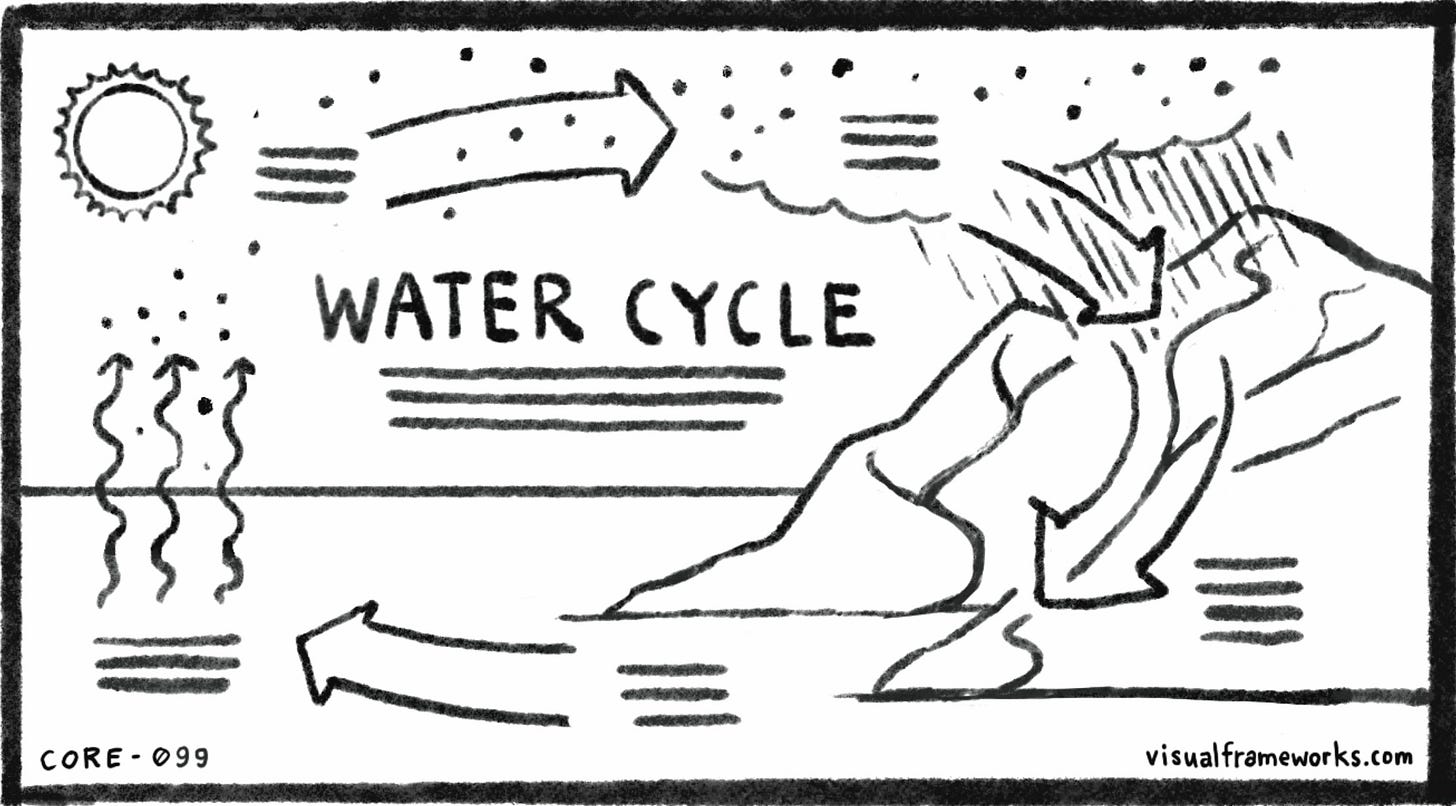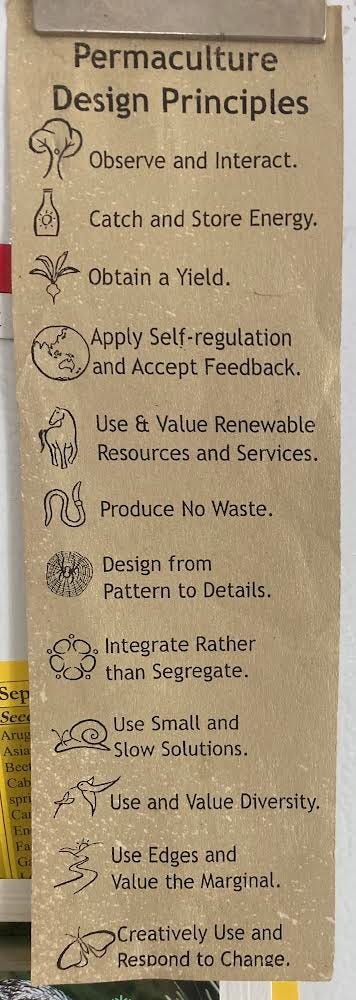Monday Memo #14
Think like an ecosystem.
The Monday memo is food for thought to fuel your week.
Hello everyone,
Hi all,
Last week I asked you to think like a gardener. This week I want you to try thinking like an ecosystem.
I had a stimulating conversation with Joan Vermette recently that has got me digging into the concept of permaculture. If you haven’t heard the term before, permaculture is a portmanteau of permanent + agriculture.
Permaculture is a new(ish) word based on a very old idea: farming in ways that harmonize with nature instead of working against it. The idea is to start by observing natural patterns and nudge our environment in directions that are more beneficial. Permaculture asks us to cultivate a mindset where we see nature as a teacher.
The conversation with Joan reminded me of one of our recent Campfire calls, when Genevieve Morand told us about the Kogi people, an indigenous tribe that has practiced permaculture in Colombia for more than a thousand years. The Kogi created a permaculture garden which provides plentiful food and water and spreads from the mountains to the sea.
The Kogi people believe that they live in the heart of the world and they are its custodians. There are two documentaries about them that are free to watch on YouTube. The Lost City is the first, filmed in 1990, and Aluna is a follow-up by the same film-maker, Alan Ereira, who returned after 20 years to talk to them again. I’ve linked to both films below.
Permaculture is also a great metaphor for thinking about how we might create more nourishing cultures, in life and at work, taking a more nurturing and harmonic stance toward the environments we inhabit.
If you want to study along with me, the most interesting book I have found so far is a free ebook by Matt Powers called the Permaculture Student 2, which you can download for free here.
Here are some permaculture principles Chelsea Peil shared recently in our email discussion group. If you’d like to join the email group send us a note here.
In a natural ecosystem there is no waste. Energy is stored, recycled, repurposed, and re-used many times before it leaves the system. In a natural ecosystem every output is an input for something else.
Exercise.
So what does it mean to think like an ecosystem? Primarily this is about slowing down. Pause any desire to solve problems. Try not to see things in terms of problems to be solved but rhythms, cycles, and flows to be understood. What creates energy in your life? Where is it stored? What is your yield? What is recycled, repurposed, and re-used? Where are the edges? What feedback are you getting from the system? What feedback are you giving? How do you adapt and co-evolve with the system?
Observe more. Notice more. Extend your time horizons. Consider ways to do fewer things and have more long-term impact at the same time.
Imagine that you are an important element in a dynamic ecosystem. There is no action inherent in this exercise. Just pause, observe, notice your experience, and reflect.
Updates:
Our Friday Campfire calls are free to join, anyone is welcome, and we talk about things that are fueling our creative energy and inspiring us. The energy is infectious. Even if you’re stuck, or don’t feel like you have anything interesting to add, if you have the time, join anyway. I promise you’ll enjoy it.
Instructions to join the Friday Campfire and/or add it to your calendar.
Collaboratories are held on the first and third Wednesdays of every month. They are free for members, and we have one coming up this week, in which Jim Kalbach will help us explore sketching experiences. Next month, David Hutchens will join us to explore love in leadership, and Mike Rohde will help us think about sketching projects. Members also get access to recordings of previous collaboratories and the full email archive. Become a member by upgrading your subscription.
As of this week we have 57 members. The first 100 members will lock in the $20/month, $200/year rate.
If you’re already a member, thank you. You’re making this possible.



